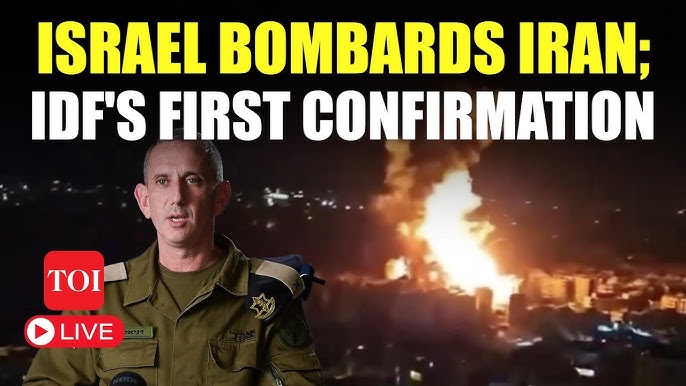How Far Will the Reach Extend?
Explosions Shake Tehran at Dawn
A series of explosions rocked Tehran early Saturday as Israel launched airstrikes against Iranian military sites. The Israel Defense Forces (IDF) confirmed strikes on air defenses, missile factories, and other facilities. Israel’s goal? To expand its aerial freedom and, as IDF spokesperson Rear Adm. Daniel Hagari put it, “fulfill our mission” to safeguard the state of Israel.
Retaliation in Full Swing
The strikes come after Iran’s October 1st missile barrage, which unleashed nearly 200 missiles on Israel. Tehran called it payback for Israel’s assassination of Hamas political leader Ismail Haniyeh on Iranian soil. Israel’s Iron Dome intercepted most missiles, but a few reached central and southern Israel. Now, Israel fires back, propelling this cycle of relentless reprisals forward.

Chaos and Counterattacks in Iran
Iranian state media reported Israeli attacks not only in Tehran but also across Khuzestan and Ilam provinces. Iranian forces scrambled to counter Israel’s strikes, limiting damage across several sites. Officials halted flights briefly before restarting them, as Iran signaled a readiness to stand firm and push forward in this volatile standoff.
Global Reactions: Allies Show Support
The United States and the United Kingdom, key allies of Israel, quickly voiced support. The U.S. described the strike as “self-defense,” while the UK echoed this stance, underscoring Israel’s right to protect itself. However, a U.S. Department of Defense official clarified that the U.S. had no direct involvement. President Biden received a full briefing, while UK officials pledged close monitoring of the unfolding situation.
What Lies Ahead?
With flights grounded, missiles launching, and tensions on edge, many in the region brace for what’s next. Will the barrage pause, or does this escalation set the stage for an even fiercer conflict? For now, both sides remain locked in anticipation, each strike pulling them deeper into the unfolding storm.



